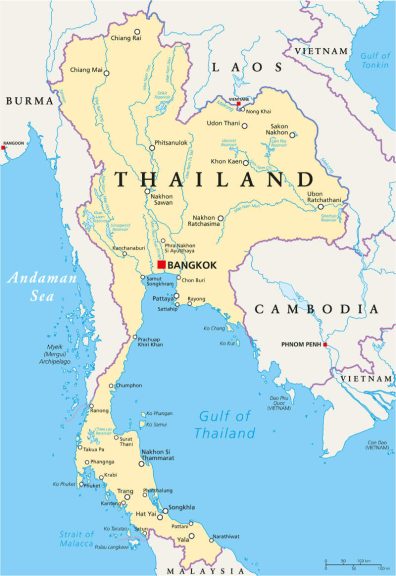The Russian Foreign Minister, Sergey Lavrov has been discussing the enhancement of bilateral trade and economic relations, and the coordination of the BRICS framework, with his Thai counterpart, Maris Sangiampongsa. The Ministers met at the BRICS Foreign Ministers’ meeting in Rio de Janeiro.
The Russian Foreign Ministry said that the two sides “aligned their positions on key issues related to the development of Russian-Thai cooperation, including advancing political dialogue, enhancing trade and economic ties, and promoting humanitarian exchanges, as well as discussed the coordination of efforts within BRICS and other international platforms. A mutual exchange of views took place on current international and regional issues. The ministers agreed to continue their mutually beneficial contacts.”

Thailand became a BRICS partner country from January 1, this year, with the Thai Foreign Ministry stating at the time that “This partnership is expected to strengthen Thailand’s international cooperation, particularly in trade, investment, and tourism, and enhance Thailand’s role in multilateralism.”
Thailand holds a strategic position in Southeast Asia for Russia, acting as a gateway to the broader ASEAN region, and notable for being the regions second largest economic power. Recognizing this, Russia inaugurated a consulate in Phuket in July 2023, underscoring its keen interest in bolstering trade relations with the country, which is also popular with Russian tourists, some of whom establish small businesses.
Thailand, along with numerous other Southeast Asian nations, has refrained from imposing sanctions on Russia, acknowledging its role as a crucial trade partner. Furthermore, Russia plays a central role in Thailand’s foreign policy, which is increasingly focused on diversifying its international relationships. However, despite these dynamics, the bilateral trade between Russia and Thailand has experienced a substantial decline which has not been caused solely by the conflict in Ukraine but rather illustrated the overall challenges – distance and the lack of viable trade routes that Russia is facing in redirecting its trade focus towards Asia.
Russia typically traded with Thailand via the Suez Canal, but the crisis in the Red Sea that began in December 2023 with attacks on merchant ships by Yemeni Houthis made this route unworkable. Instead, Russia intends to expand the Eastern Sea Corridor via Vladivostok to India and Southeast Asia to include ports in Thailand, which would significantly reduce the distance and costs. Dmitry Krasnov, head of the Federal Centre ‘Agroexport’, notes the significant potential; according to his forecast, Russian exports of agro-industrial products to Thailand could reach more than $210 million a year by 2030, increasing fivefold.
Illustrating this, Russian exports of agricultural products to Thailand almost doubled in the first nine months of 2024. Russian exports of wheat flour and frozen fish saw the strongest growth, increasing by 100% and almost 80% respectively.
Trade with Russia in 2021 stood at US$2.3 billion and declined to around US$1.5 billion in 2024. That suggests a recent negative trend, however a desire by both sides to correct this should result in improvements.
Further Reading

 Русский
Русский














